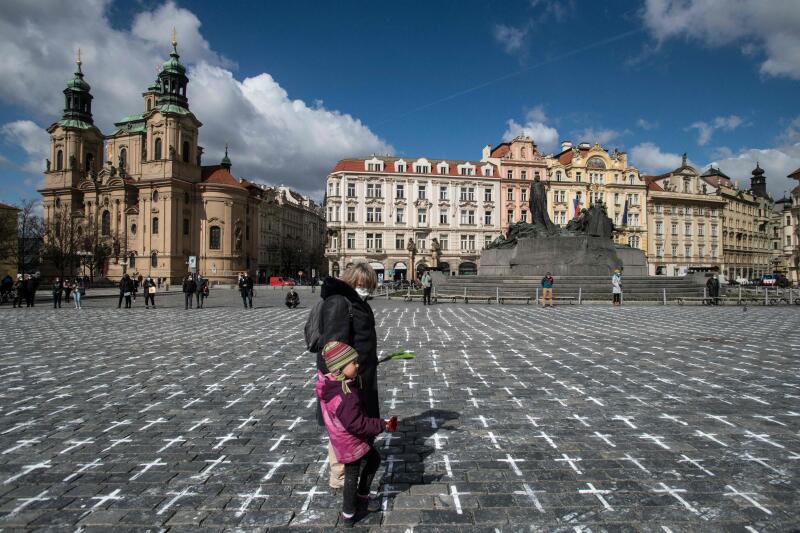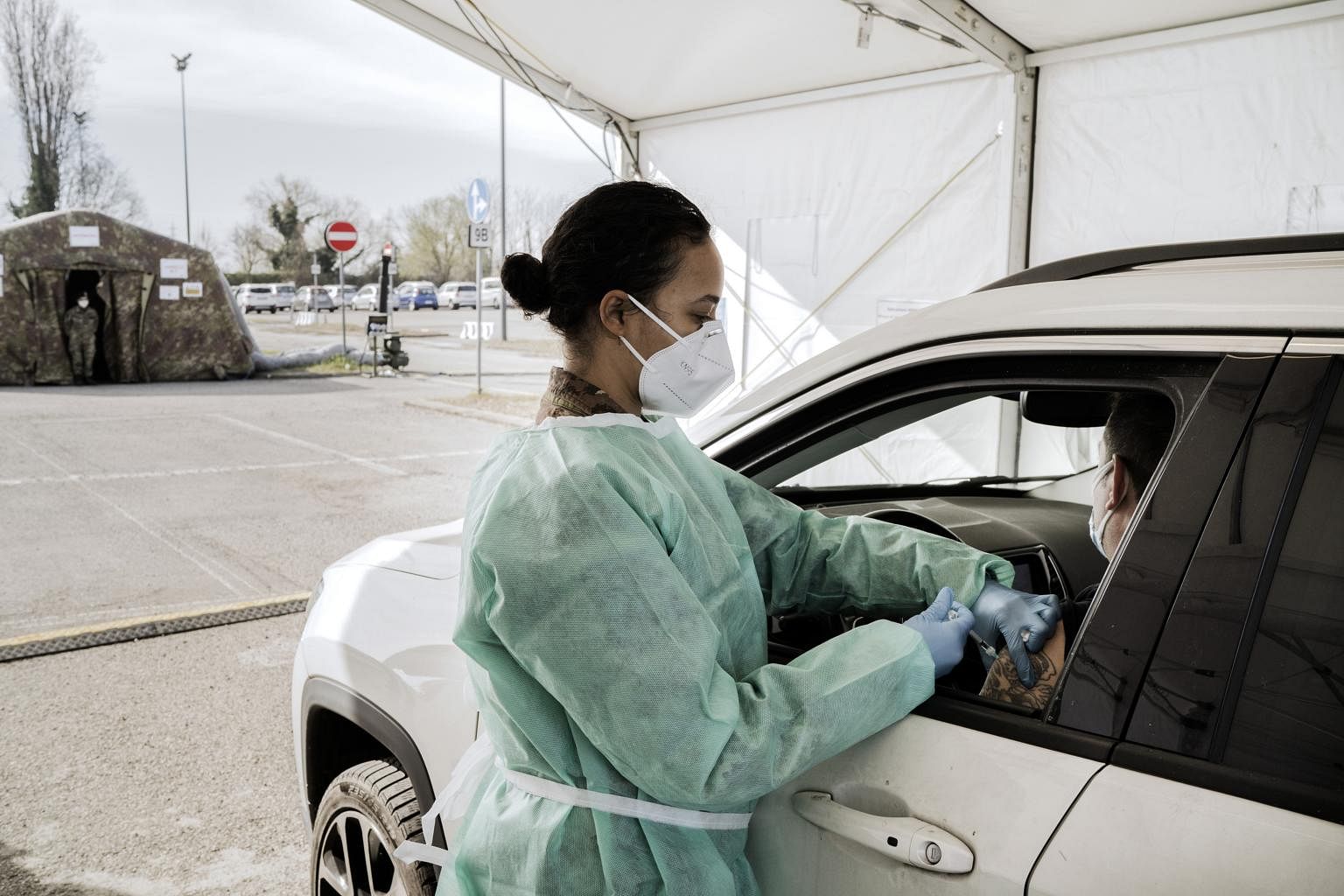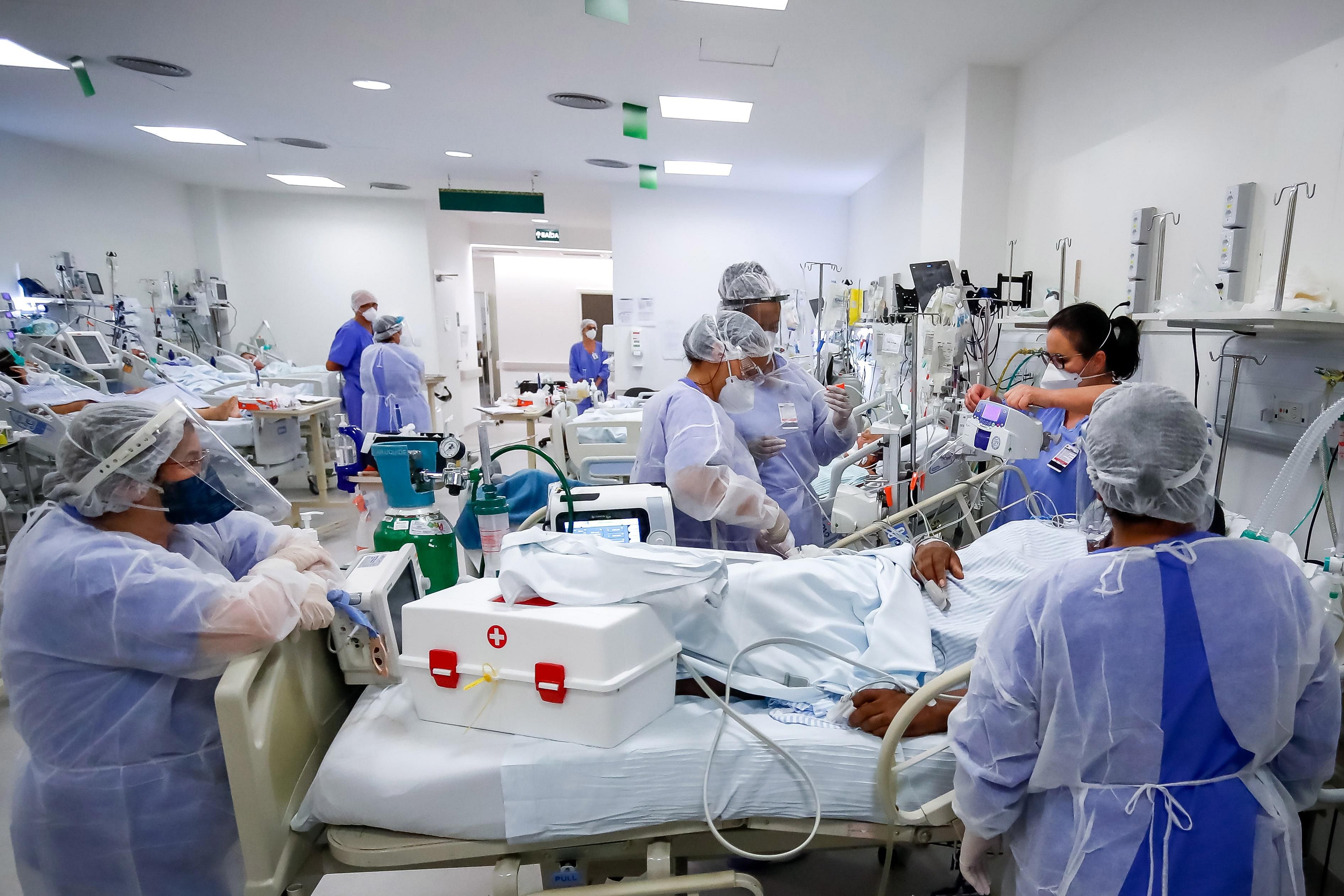Covid-19 surge in some European countries a cautionary lesson not to rush relaxation of measures
Sign up now: Get ST's newsletters delivered to your inbox

European countries like Sweden, Poland, Estonia, Italy and the Czech Republic have seen huge spikes in infections.
PHOTO: AFP
Follow topic:
SINGAPORE - The recent surge in Covid-19 infections in some European countries is a cautionary lesson for the rest of the world.
It shows that even with just a handful of community cases, the numbers can spiral out of control very quickly, that countries which relax safety measures too early can undo all the good they had done, and that the start of a vaccination programme does not mean safety is in sight for a country.
European countries such as Sweden, Poland, Estonia, Italy and the Czech Republic have seen huge spikes in infections since the start of the year.
The Czech Republic now has the highest proportion of infections and deaths in the world, among countries with populations of more than one million people.
About 1.47 million of its 10.7 million citizens have been infected, and more than 25,000 have died - with over half the infections and deaths arising from the surge this year, at a time when many other countries are bringing the outbreak under control.
The country has had three peaks since numbers started going up last September - in end-October, mid-January and early this month.
The Czech Republic had done well between March last year - when it had its first case - and the start of September, with a total of fewer than 25,000 infections and 427 deaths.
But between then and now - in just over half a year - the numbers have surged.
Earlier this month, its hospitals ran out of beds and its government had to appeal to other European nations to take in some of its Covid-19 patients.
How did things go so wrong?
Said Professor Dale Fisher, a senior infectious diseases consultant at the National University Hospital: "I think many have unrealistic expectations about opening up."
Because the country had been doing so well, restrictions were relaxed. When numbers started to surge in September, more stringent measures - expected to be unpopular - were delayed till after elections in early October.
The rest is history.
Prof Fisher added: "Country by country, it varies. The United Kingdom, Belgium and Spain are still having nice falls. Italy, Poland, Turkey, Hungary, Greece and Bulgaria are going the wrong way.
"It can only be explained by the state of national restrictions, community behaviours and masks wearing, et cetera."
Professor Teo Yik Ying, dean of the National University of Singapore Saw Swee Hock School of Public Health, agreed.
He said: "It's mainly attributed to some governments lifting restrictions even before they should, with respect to their vaccination roll-outs and the decrease in community transmissions.
"There is a certain degree of hubris in some societies that vaccination is under way and so restrictions can now be relaxed."

Associate Professor Hsu Li Yang, the school's vice-dean of global health, argues that the more infectious new variants have also contributed to the spike.
The B117 variant from England is said to spread at least 50 per cent more easily than earlier forms of the coronavirus.
"As to why some of these countries are not reacting aggressively to the rise in cases, it seems to be largely a matter of politics," added Prof Hsu. "Many of the countries are coming out of tougher restrictions. Bulgaria, for instance, chose to reopen restaurants on March 1 despite the surge in cases, and may reopen nightclubs on April 1."
But he added that it is not easy to pinpoint the exact reasons for a surge.
"We cannot attribute with certainty weightage to different factors - what causes Covid-19 rates to go up or go down in different countries. We had similar issues at different times last year trying to understand why certain countries in Europe were hit harder than others," he said.
Meanwhile, the vaccination programme in Europe has been facing many problems, and is significantly slower, with less than a third the number of doses given compared with in the United States and Britain.
However, while vaccines help to cut deaths from Covid-19, they may not be able to stem infections on their own, according to a study by the University of Warwick published in The Lancet this month.
The study used a mathematical model on Britain, which has a population of 68 million.
It calculated that with 75 per cent to 95 per cent of the adult population vaccinated, and a "most optimistic assumption that the vaccine will prevent 85 per cent of infections", removing all safety measures would lead to 21,400 deaths.
If the vaccine prevents only 60 per cent of infections, then the number of deaths would increase to 96,700.
The researchers explained: "Although vaccination substantially reduces total deaths, it only provides partial protection for the individual."
Said Prof Teo: "Lessons for Singapore thus include that we should not rush to relax our restrictions despite our national vaccination roll-out, and to continue our surveillance of the virus from our imported and community cases."
Associate Professor Alex Cook, vice-dean of research at the Saw Swee Hock School of Public Health, said: "I don't think we'll see massive changes to policy until vaccination rates are sufficiently high to mitigate the risk, but given the low case numbers since Chinese New Year, we can probably relax some of the measures in place."
He thinks it is safe to allow "slightly more people" to return to the workplace, "resuming some events, allowing more nightlife, with larger groups allowed at temples and mosques".
He added that bigger changes might be possible once the vaccination drive reaches larger milestones, such as when half the population has been vaccinated.
But Prof Fisher said opening up the economy could be a "challenge" if vaccine hesitancy means a smaller number of people getting vaccinated, and if emerging virus variants reduce the efficacy of current vaccines.
He said: "Opening up will need to be targeted and incremental, with countries with similar prevalence and outbreak control working together. Opening up won't be a sudden development."

Prof Teo agreed that it is necessary to evaluate the effectiveness of existing vaccines against new variants, and "to understand their global footprint before governments decide to rely on vaccination certifications as a way towards quarantine-free travel".
He said that the P1 variant from Manaus in Brazil "is extremely worrying, because it can reinfect people previously infected".
Professor Ooi Eng Eong, an expert in microbiology and immunology, noted that the variants "appear to be able to escape the antibodies generated following vaccination".
There may be a need to update the vaccine composition, he said.
"The decision on whether vaccines that cover the variants are needed will depend on the immune responses generated by the vaccines," he said.
"For instance, RNA vaccines that generate strong T-cell responses may be less prone to immune escape by mutants, given how T cells function compared with those vaccines, such as the inactivated vaccines, that generate mostly antibody responses."
"It will also depend on which arm of the immune system, whether T cells or antibodies or both, are more important in protecting against Covid-19."
Prof Hsu said that with new variants emerging, over 80 per cent of the population would need to be vaccinated for herd immunity to be achieved. He added: "I do not see a path to relatively free travel other than through iron-clad vaccination certificates."

